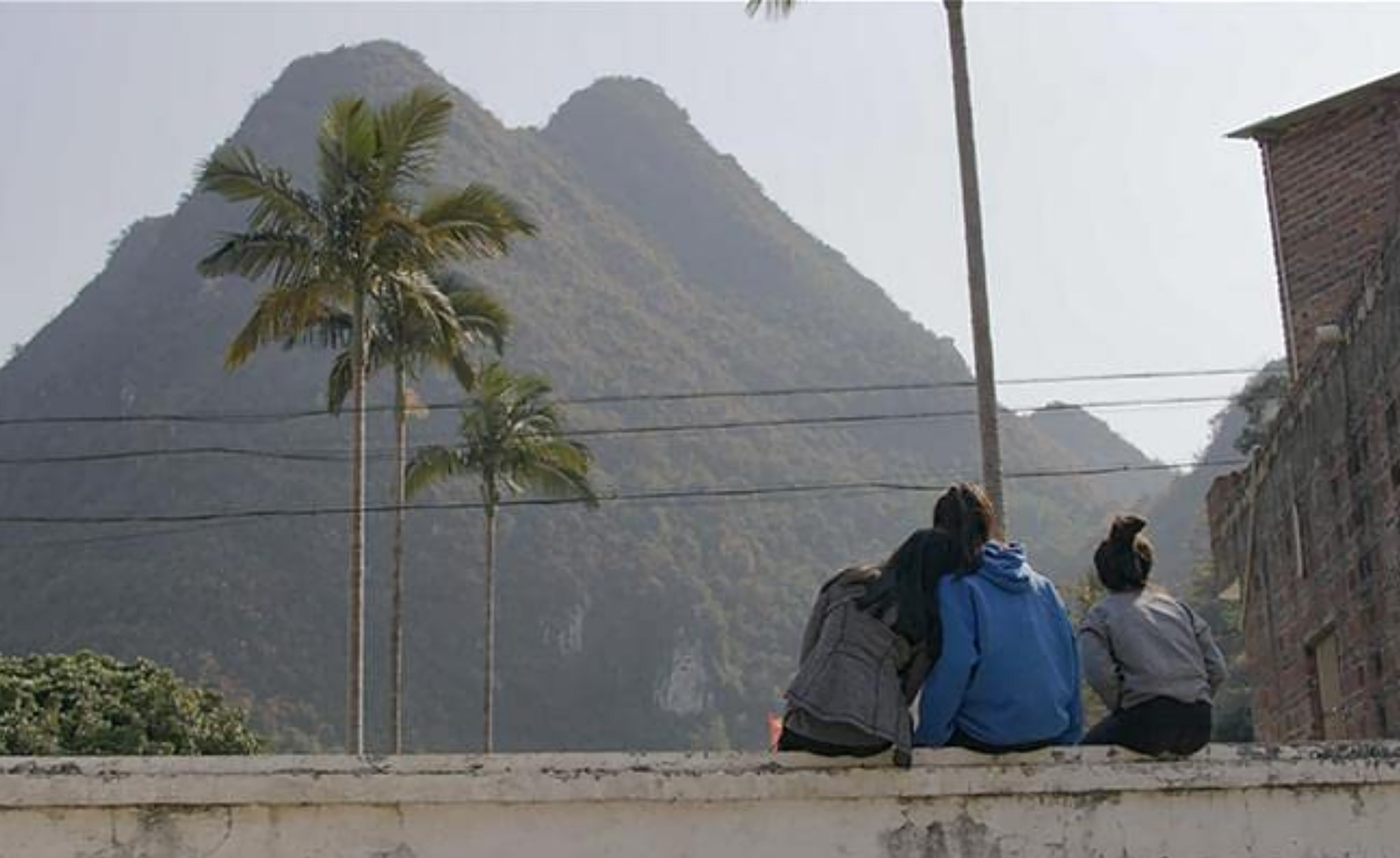
- Film
Docs: “Found” (2021)
Found is an involving documentary that taps into a thick vein of universal feeling while also never running or trying to squirm free from the potential ambiguity inherent in its story. After DNA tests reveal that they are blood-related cousins, three American teenage girls, all adopted as babies from China, develop an online friendship built around the understandably complicated feelings they each have about their respective lost personal histories. Seeking some answers if not full closure, they and their parents enlist the assistance of a genealogical researcher before eventually embarking on a joint trip abroad which provides lived-in evidence of the expansive definition of family.
Sadie, whose parents have divorced, has a mother who harbors feelings of guilt over having brought her into a home only to then split it up. Lily, the only child of a single mother, faces the challenge of corrective jaw surgery just as she’s ready to head off to her freshman year of college. Chloe, meanwhile, is very interested in learning not only about Chinese culture but also actually learning Mandarin, yet, of the three, manifests the least interest in actually attempting to track down her biological parents. Collectively, the girls represent an interesting cross-section of the United States, both geographically (Sadie lives in Tennessee and Lily in Oklahoma, while Chloe moves from Seattle to Phoenix during the course of the movie) and religiously (one is Jewish, one Catholic, one nominally Protestant).
The trio is very “westernized” and fairly divorced from any meaningful connection to China. Thankfully, Found touches on identity in an entirely age-appropriate, non-pushy way, merely letting each girl ruminate on their own terms about how central their ethnicity and backgrounds are to the lives they’ve lived and who they are today, and how it relates to the paths they might want to take in the future. While there are a couple anecdotes of odious bullying, these mostly seem rooted in adolescent cruelty over adoption, and nothing racially motivated. For the most part, Sadie, Lily and Chloe all seem well-adjusted, and surrounded by friends and family who love them.
There are a couple of oddities, or at least curiosities, to the film, the first being that one of the subjects is the niece of the film’s director, Amanda Lipitz, whose credits include 2017’s Sundance Film Festival Special Jury Prize-winning Step. In and of itself this fact isn’t a big deal. But the movie’s failure to disclose the fact, and indeed the manner in which it willfully edits around reality to obscure it, needlessly creates some structural questions about Found. Also, the movie doesn’t really attach a lot of relevance to the girls’ being biologically related. The searches for each girl’s birth parents all feel isolated and discrete, with more significance attached to similarities about where they each were found abandoned, for example.
In fact, Found’s ample genetic investigatory strand — wonderfully carried by Liu Hao, a friendly and dogged Beijing-based investigator with her own complicated relationship to China’s much-discussed “One Child” policy — actually slackens a bit once the families head overseas, or at least softens in an intriguing way. Collaborating again with Step editor Penelope Falk, Lipitz evinces a preternatural knack for eschewing mystery in favor of commingled mood and simple human feeling. Whether this approach is a gendered perspective or not is open to debate, but it feels like the more basic and conventional version of this story would definitely invest a lot of energy in its big reveals. Found is the opposite of propulsive — but never in a fashion that is either dawdling or overly coy.
Instead, Lipitz drills down into showing viewers more about the lived experiences of the “supporting” characters in Sadie, Chloe and Lily’s stories. Liu’s painstaking work, which starts with photos posted on social media, and then encompasses hours of phone calls and in-person visits to remote locations in the southern coastal province of Guangdong, provides Found with a type of parallel platform. And through her, we meet not only an array of possible biological parents who gave up children for adoption under various heartrending circumstances but also some of the nannies who labored to care for these babies. This gives Found an increased dimensionality and helps mark it as a uniquely perceptive and humanizing work.

